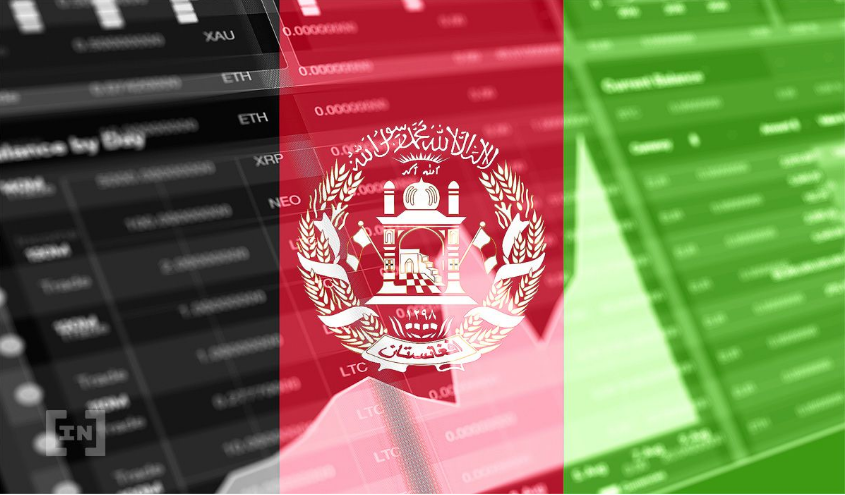Afghanistan is currently one of the top 20 countries that have widely adopted cryptocurrencies. Afghans have shifted to digital coins to protect their wealth from Talibans. Crypto is highly volatile but Afghans have put their trust into stablecoins instead of Bitcoin.
Suggested Reading | Abu Dhabi Grants Kraken License To Operate Crypto Exchange
Storing Assets in Crypto
With the Taliban scare, most citizens in Afghanistan hid their assets like jewelry and cash underground or stashed under their beds and pillows but now, they have a better option – storing it in crypto.
New cryptocurrency users who are oppressed by civil wars find consolation with the option to store their assets and also grow their income in the form of stablecoins, like Tether.

Most Afghans buried their valuables, such as jewelry and cash, underground or beneath their beds in the wake of the Taliban threat. (Image credit: CNBC)
For instance, Ukraine has received millions of donations in crypto to date. People in Myanmar have also turned in this direction to survive the military oppression.
Talibans took over Afghanistan in a matter of days right after the NATO and United States forces left the country. Afghanistan’s economy has been crippled with multiple sanctions in place. People have grown desperate and hungry.
The US has put on hold a total of $9 billion in foreign exchange reserves and the banking system has been unreliable in these trying times. In fact, citizens can only withdraw a maximum of $400 weekly.
Crypto total market cap at $1.84 trillion on the daily chart | Source: TradingView.com
Crypto Brokers at Work
There are a few crypto brokerages operating in major cities of Afghanistan mostly because it’s almost impossible to directly transfer bank funds to crypto exchanges like Binance. The bank sanctions have made financial transactions entirely difficult for Afghan citizens.
Brokers are implementing the Hawala system wherein they send US dollars to their connections in Turkey, the US, and other parts of the world. In turn, their contacts would send crypto funds to their Binance accounts. Meanwhile, customers can also exchange their crypto for cold cash.
Suggested Reading | EU Tightens Noose Around Bitcoin Price To Protect Ethereum, Internal Documents Reveal
Stablecoins Better Than Bitcoin?
It’s puzzling why Afghan customers are not looking to trade or invest in Bitcoins. They prefer stablecoins because it’s relatively more secure as these are backed by dollars. However, stablecoins have some risks to it just like any other digital asset.
Crypto adoption has immensely increased with the Taliban invasion. Some have also used crypto transfer to Pakistan or other nearby countries. Crypto adoption has also been widespread in Myanmar and Argentina.
People are no longer storing their wealth in form of cash or gold. There is a smarter way to safeguard assets. They are now hedged on crypto.
Featured image from BeInCrypto, chart from TradingView.com











